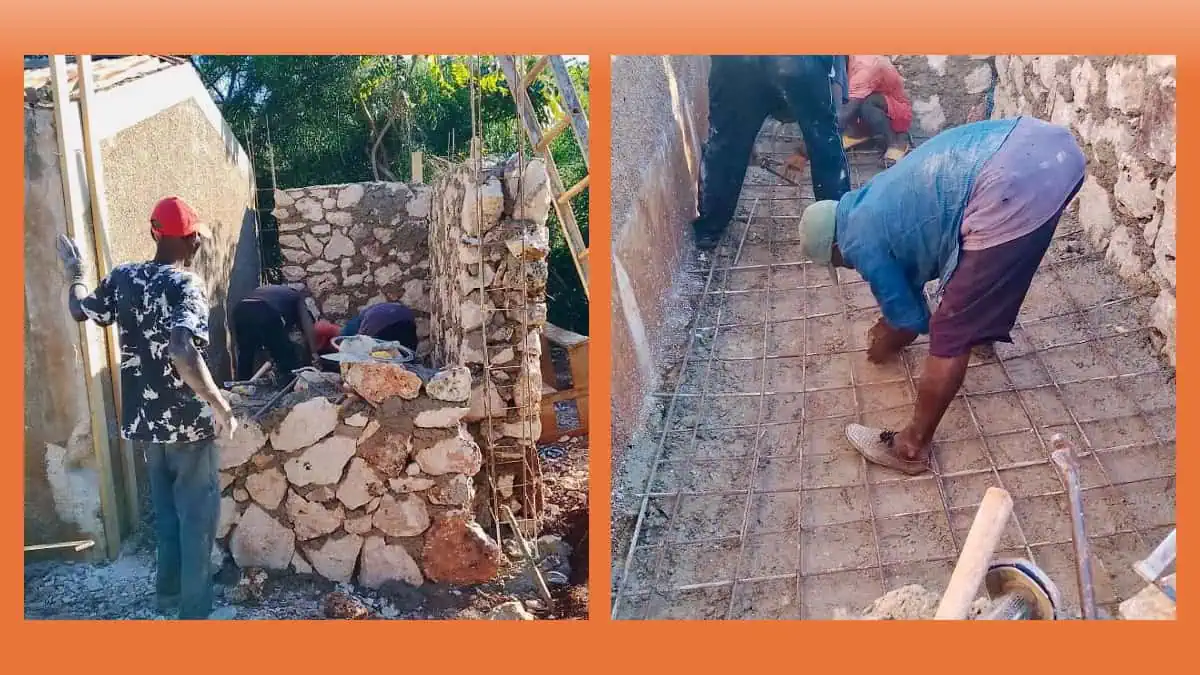
Maxandre at a speaking engagement in Chicago in 2011 (Erik translating)
August 2013
Erik Badger
Maxandre Bien-Aime is the principal of IMN Community School. He has a degree in linguistics from the Haitian state university and is a leader in his community. I am a liaison to IMN and have known Maxandre since I lived in Haiti from 1999 to 2001. When I visit Leogane, I often stay at his home. When visiting supporters in Chicago, I translate for him and chauffeur him to events. I have enormous respect for him and one of the things I cherish most about our friendship is our ability to be frank with one another. Over the years he has been an invaluable consultant as we’ve considered new initiatives and how we can improve our work together.
When Haiti Partners first began to engage in the social business model, I was visiting the school and after a full day of activities Maxandre began to tell me his concerns about the concept. He questioned whether such an enterprise could work in his particular community. He questioned how we could expect him and the leaders at our other schools who are, after all, educators, to become successful entrepreneurs. He questioned how they – school, church, and community leaders, all of them – would find the time to run a business on top of everything else they were already doing.
This conversation gave me pause. How would a social business fare in his community? How would our partner school leaders find the time and succeed as entrepreneurs?
Over time, however, Maxandre came around. We partnered with Yunus Social Business. We contracted a YSB employee to specifically focus his efforts on helping our partner schools get started. We held meeting after meeting to talk about the model, organized excursions for our school leaders to visit existing social businesses in Haiti, did feasibility studies and created business plans. Finally, we achieved legal recognition and were approved for hundreds of thousands of dollars of funding to make it work.
Last summer I visited Maxandre again. By this time he had joined the Board of HAJI (the poultry farm social business in Leogane) as its treasurer and become a clear, if measured, proponent of the social business concept. In meetings where he previously offered critiques for why it might not work, he now offers arguments for how it can. When we spoke about it this time he was optimistic and committed to doing whatever he could to bring it to fruition.
Maxandre’s change of heart about social business as a means to helping the partner schools become financially independent and improving his community gives me hope. It is precisely leadership and investment from people like him that will be required to make the social business for quality education model a success.
*Click here to learn more about social business